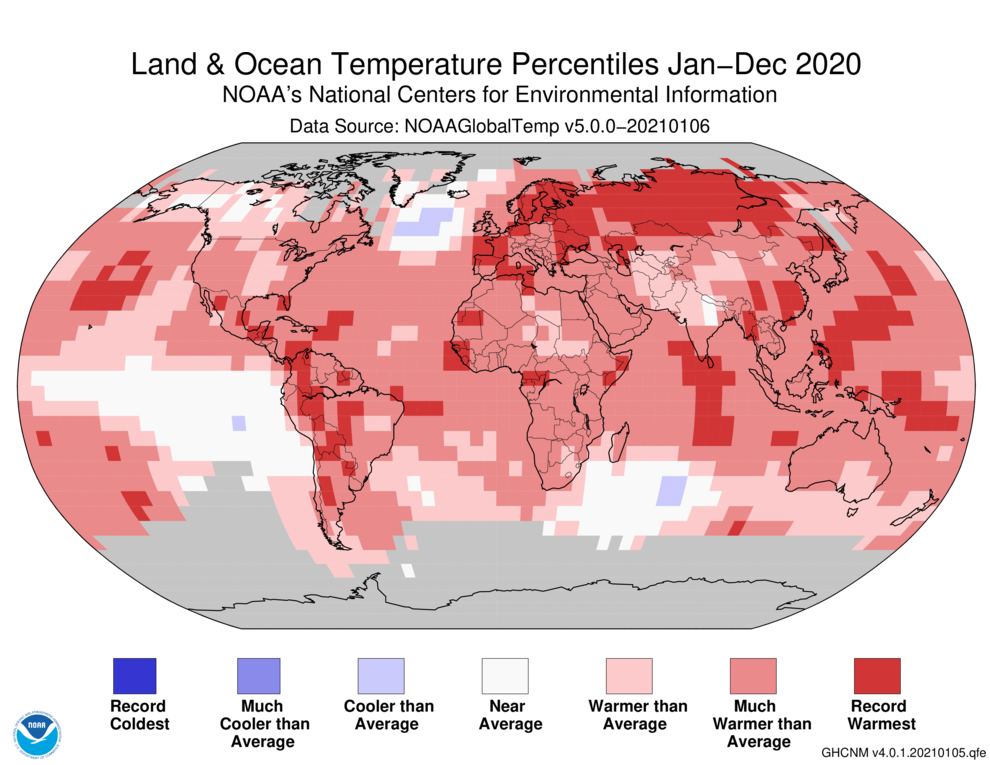Last year was the earth's second-warmest year on record, a new National Oceanic and Atmospheric Administration (NOAA) report revealed on Thursday.
2020 also only barely trailed 2016 for the warmest year on record, missing top honors by just a few hundredths of a degree.
For the Northern Hemisphere in particular, 2020 was an exceptionally scorching year. The average temperature across the Northern Hemisphere finished 2.3 degrees Fahrenheit above the 20th century average, making it the warmest year on record for the northern half of the globe.
While the United States generally experienced slightly above-average temperatures in 2020, the bulk of the searing heat globally came in Russia and much of Europe, where 2020 temperatures finished at record high levels over most of the Eurasian landmass.

Likely thanks to ongoing La Niña conditions in the Pacific Ocean, the United States finished with above-average temperatures in 2020, though not wildly so. La Niña typically leads to below-average temperatures across much of the United States.
Elsewhere, much of South America and East Asia experienced their hottest year on record, while the lone relative cool spots took place in the northern Atlantic Ocean and the southern Indian Ocean. The northern Atlantic Ocean cool spot is likely due to the melting of the polar ice caps and the potential slowing of the Gulf Stream ocean current.
As a whole, earth finished 1.76 degrees Fahrenheit above the 20th century average, only 0.04 degrees off the 2016 record and leapfrogging 2019 into second place all-time.
Perhaps most importantly, 2020 as a whole offered another important data point about climate change. Dating back to 2014, each of the last seven years finished as one of the warmest seven years on record.
2020 also marked another unwelcome milestone: It clinched the 44th-straight year with above-average temperatures across the globe.



